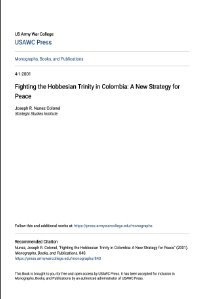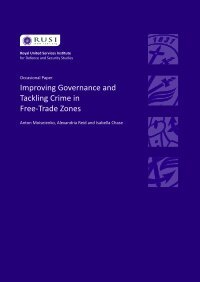Edited by David A. Shirk, Duncan Wood, and Eric L. Olson
Mexico has suffered a severe security crisis over the last decade. As in several other Latin American countries, elevated levels of crime and violence—and especially the proliferation of violent organized crime groups—have presented a serious threat to the Mexican state and to ordinary citizens. During the presidency of Felipe Calderón (2006–2012), the Mexican government attempted to address these problems primarily through law enforcement and military operations to combat organized crime and reforms to enhance the institutional integrity and efficacy of police and judicial sectors. Calderón’s successor, President Enrique Peña Nieto (whose six-year term began in 2012) spent much of his first year in office attempting to shift the narrative within and about Mexico from security issues to other matters, including political, economic, and social reforms to help move the country forward. However, while placing less emphasis on such matters, Peña Nieto also largely continued Calderón’s approach to security by targeting major organized crime figures, deploying federal forces to address urgent local security crises, and pushing ahead with efforts to implement Mexico’s new criminal justice system. Still, for many Mexicans, there have been few improvements in their dayto-day sense of security, their confidence in law enforcement authorities, or their ability to attain access to justice. Indeed, crime and violence remains such a serious concern in certain parts of the country that ordinary citizens have taken to extraordinary measures—hiring private security guards and embracing vigilantism—to protect themselves. In recent years, the emergence of self-professed citizen self-defense groups has introduced a new dimension to Mexico’s security situation. Such developments raise concerns about the course of Mexico’s security situation over the longer term. On the one hand, there are serious questions about the capacity of the Mexican government to fulfill its responsibility to provide for basic citizen security. While not a failed state, Mexico has proved highly vulnerable to penetration and corruption by powerful organized crime groups, and the government’s ability to maintain a monopoly on the legitimate use of force has been challenged by both political insurgents and violent criminal organizations.
Washington DC: Woodrow Wilson International Center for Scholars; San Diego University of San Diego Justice in Mexico Project, 2014. 294p.




